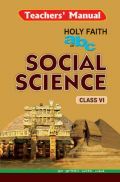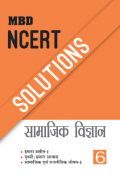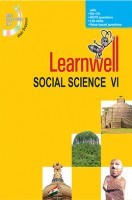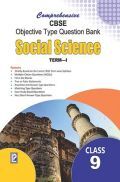The present book on Social Sciences meets the requirements of the new NCERT syllabus for Grade VI. The main objective that has been kept in view is that the contents have been presented in a manner such that the readers can relate them to their everyday experiences. They should be able to imbibe the ideals of our Constitution by getting a feel of the functioning of our democratic institutions at the grass root levels. Special care has been taken to focus on social and economic programmes for development of those sections of the society that are under-privileged and relatively disadvantaged.
The chapters on History have been carefully supplemented with maps and photographs to give a better understanding of historical developments relating to India starting from the earliest societies and extending upto the end of the ancient period of Indian history. Summary of Facts Learnt and structured questions at the end of every chapter have been designed to help recapitulation and also provide scope for creative expression.
This book Useful for Class VI Students.
Our Past – I
1. When, Where and How
2. Sources of Studying the Past
3. The Earliest Societies
4. The First Farmers and Herders
5. The First Cities
6. Different Ways of Life (Vedas and their Teaching)
7. A Contemporary Chalcolithic Settlement
8. Janapadas to Mahajanapadas
9. Upanishads, Jainism and Buddhism
10. The First Empire
11. Life in Towns and Villages (Agricultural Intensification)
12. Contacts with Distant Lands
13. Gupta Empire (Political Developments)
14. Harshavardhana (Political Developments)
15. The Pallavas and Chalukyas (Political Developments)
16. Literature (Culture and Science)
17. Architecture, Painting, Sculpture and Sciences (Culture and Science)
The Earth Our Habitat
1. Earth in the Solar System
2. Globe : Model of the Earth
3. Rotation and Revolution of the Earth
4. Maps
5. Realms of the Earth
6. Major Relief Features of the Earth
7. Our India : (Physiographic Divisions)
8. India : Climate, Vegetation and Wildlife
Social and Political Life – I
1. Diversity, Interdependence and Conflict
2. Government : Its Need and Rationale
3. Key Elements of Democratic Government
4. Local Government
5. Panchayat Samitis and Zila Parishads
6. Urban Local Government
7. Rural Administration
8. Making a Living
Interesting Projects and Assignments
Supplements






























